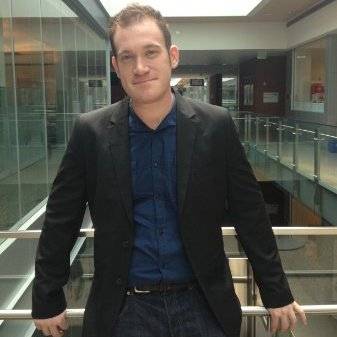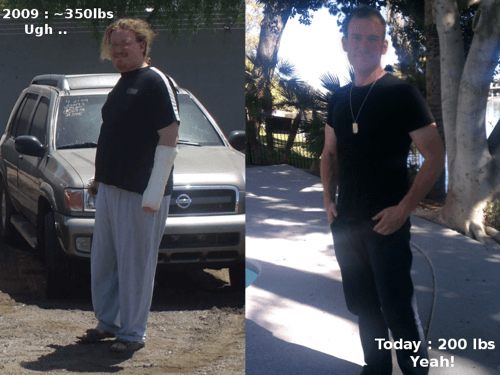
ReadWriteBody is an ongoing series where ReadWrite covers networked fitness and the quantified self.
Clinton “Cosmo” Mielke used to study black holes. At the same time, he likes to say, “I was becoming a black hole.” His body was enormously efficient at absorbing nearby food matter, and he ballooned to 350 pounds.
Diabetes ran in his family, and he was getting worried. So he switched fields from astronomy to biology, discovered some pesky genes that may have been contributing to his weight gain and atrophied muscles, and dropped 150 pounds by changing his diet and working out.
See also: You Can’t Change Your Genes, But Your Genes May Change Your Workouts
You shouldn’t have to get a Ph.D., as Mielke did, to understand your body. DNA-testing services like 23andMe can offer a readout of your genes, while fitness trackers and food-logging apps make it easy to accumulate data about your activity and nutrition.
The question is how to put it together. Mielke is working on a “citizen science” effort he calls Project Infinome, and looking to raise $150,000 to get the nonprofit effort started.

There are other efforts to combine fitness and genetic data, like Genetrainer, which recommends workouts based on your genes. 23andMe, perhaps the best-known personal-genomics startup, is struggling to get regulatory clearance in the United States to offer health insights. While it tussles with the Food and Drug Administration in its home country, it’s launched a complete version of its service in the UK.
One way innovators like Mielke may be able to move forward with their projects is through a clever technical hack. The FDA regulates 23andMe’s spit-in-a-bottle gene-testing kit as a medical device, which limits what 23andMe can do with the data. But 23andMe lets its users take their genetic data elsewhere through its application programming interface, which Genetrainer currently uses and which Mielke is hoping to incorporate in Project Infinome. It’s not clear that the FDA’s authority extends to such software, and the FDA has said it will exercise “enforcement discretion” with broad categories of mobile apps. Arguably, we’re just gaining access to our own health information.
There’s another approach that bypasses the whole question of testing the genome. Ph360.me, a personal-health app, aims to analyze users’ phenotypes—the physical traits that are the results of how our genes express themselves.
“You’ve got a lot of genes that don’t matter,” said Matt Riemann, the creator of Ph360.me. “We can talk about the phenotype without needing to analyze the genotype.”
I tried out Ph360.me, and got a lot of very specific recommendations on foods to eat and to avoid—which was interesting, but clashed with other research I’ve seen. Genetrainer, likewise, offered workout recommendations which didn’t always line up with advice I’ve gotten from experienced trainers. The impression I get from these services is that they’re struggling to link the high-minded science they’re based on with practical recommendations.
That may be a challenge for Project Infinome. When I talked to Mielke, he mentioned that he was still struggling to regulate his weight—subsisting on free pizza at tech-startup meetups will do that to you. Understanding our genes doesn’t offer a free pass on doing the work to shed excess weight. But Mielke’s optimistic that a better understanding of our genes—and how they interact with a modern environment where calorically dense food is widely available, quality sleep is scarce, and exercise is hard to squeeze into the day—can help us battle obesity and the ills it brings.
For example, he’s curious about how the timing of food consumption and workouts may affect health outcomes—insights he’ll only get if he can persuade people to share their data.
It’s a cliché to blame one’s genes for being overweight, but what if it turns out to be true?










